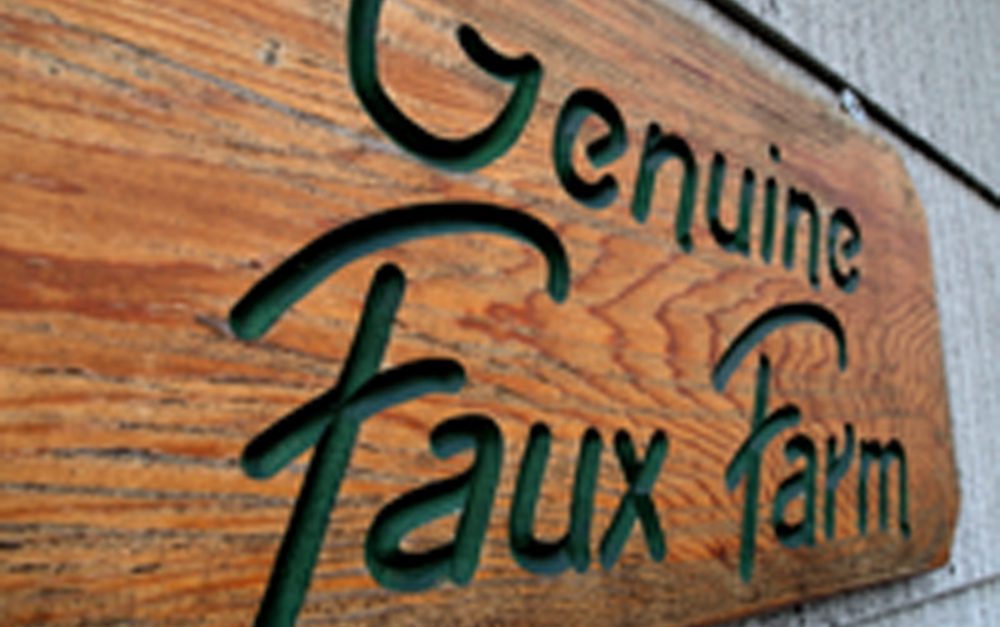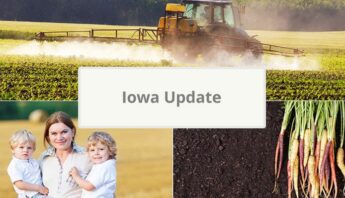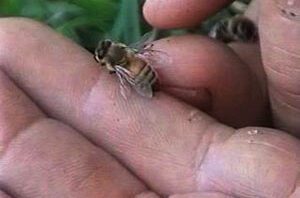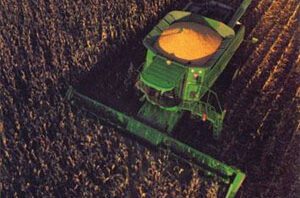We were driving through what has become an increasingly sparse Iowa landscape on our way from one place to another when we noticed a sign with the farm name proudly displayed — “XYZ Farms.”
We were driving through what has become an increasingly sparse Iowa landscape on our way from one place to another when we noticed a sign with the farm name proudly displayed — “XYZ Farms.” It was placed prominently at the intersection of two roads. And we saw a similar sign for XYZ Farms at yet another intersection, staking their claim to more fields.
We looked at the barren landscape, soil devoid of all cover with the exception of a dusting of snow and corn stalk stubble and we asked ourselves, “Do they really want to put their name next to that?”
Making our mark with a sign
We were given this nice sign (shown at the top of this blog) with our farm name on it. It is not terribly large and it doesn’t call too much attention to itself. In some ways, it is a lot like the farmers in that regard. It states what needs to be said and is not afraid to do so. But, there really isn’t that much need to make such a big deal about it.
The Genuine Faux Farm is the farm currently under our care. Yes, it is SINGULAR — just ONE farm. You see, we never did understand someone’s need to own and control multiple farms. Maybe someone else might like to farm too? And, yes, our name is pronounced “fox” not “foe,” even though it is a great play on words when you use the French word “faux,” which means “fake” or “false.”
The sign itself resided by the back door of the farmhouse for many years. This door was the main entry and if anyone came to visit or make a delivery, they might see the sign. A sign that acknowledged our contract to be stewards of this farm.
The sign is a mark of approval
This brings me back to the XYZ Farms, their signs, and my reasons for wondering why their farm name was proudly displayed there.
My eyes showed me slightly rolling hills of farmland filled with….nothing. But, what bothered me the most was the complete lack of respect and care that I could read just by the periodic observances of this land I have made over the years.
The only ground cover these fields have known over the past ten years is corn, and the soil is turned over every year in the fall after the corn is harvested. The small number of grass waterways have gotten less wide or have disappeared. Tillage has now encroached into the ditches by the road. I noticed that the top of the ditch has been turned over, exposing bare soil that is now washing down into the ditch itself. When I looked carefully, I could see where they steered their equipment around the telephone poles at the top of the ditch — making it clear that they were aware of exactly what they were doing.
And still, the sign stands at the corner of this field — proclaiming that XYZ Farms is apparently proud of their ability to promote soil erosion.
Now — before you get too upset at me — I understand that not everyone sees things the way I do. If you look at this through a different lens, you might see reason for pride. The fields are “neat and clean” and the rows are nice and straight. You’ll never see a weed amongst the corn rows. Things are done with the utmost efficiency from the perspective of labor and equipment except, perhaps, the weaving around the telephone poles. And, I am sure their production numbers are just fine.
First impressions may be deceiving
To be perfectly honest, we considered taking our own little farm sign down because we were not all that proud of the way our farm house looked. A nearby window needed repair, the back door was showing its age and the back steps made not-so-secret suggestions that they would like to collapse under our weight. To make matters worse, the old gray siding was rotting away — making our back entry the least photogenic part of our farm.
I would not be surprised if some wondered exactly why we would want to associate our name with that part of our farm — given its condition at the time. If you didn’t bother to observe the rest of our farm, you would be tempted to conclude that we didn’t care and that we were likely incompetent caretakers — stewards that should step aside for better options.
But, those who could read the health of a farm could see evidence that the farmers did care and that they were addressing issues as best they could. Eventually, the time and resources aligned so we could address that back entry. Now, even the cosmetic appearance of our farmhouse seems to indicate that we take stewardship of the Genuine Faux Farm seriously.
Looking beyond initial appearances
The corn rows at XYZ Farms are straight and nothing (and I mean nothing) will change the prescribed North-South or East-West orientation that is selected by the XYZ Farms. That means rows go straight up and down some of the rolling hills, instead of running parallel to the contours of the land. With the bare ground, you can see the quality of the soil change, getting poorer towards the top of the hill. And, this soil will continue to degrade because their cultivation practices will promote even more erosion.
From the roadway, you can see for miles. And that’s not because the road is so much higher than the surrounding land. It’s because XYZ Farms has an aversion to trees, bushes and even tall grasses. Every square inch must be available for corn, and no other growing thing is welcome there.
We would probably be accurate if we made the guess that they rely on synthetic fertilizers and a whole host of pesticides to grow the corn. The soil that remains would have difficulty producing the yields I am sure XYZ Farms expects without reliance on these chemicals.
Even if I don’t know everything about how these fields are treated, I can still read the land. I can still see that it is being “flogged to within an inch of its life.” And XYZ Farms wants you to know that they are proud of being responsible for that? I suppose, if you believe that humans need to completely dominate the land and you believe the natural world must be bound to serve us — then maybe this is beautiful to you. And maybe that’s why you want your name next to it.
But, this attitude is bleeding the life from our soils and from our Land Between Two Rivers. A state where the people still like to boast about the quality of the soil and claim the Mighty Oak as their state tree and Eastern Goldfinch as the state bird. But, this landscape makes it clear to me that neither is truly welcome here.
Iowans like to say we love the land. But what I am seeing is not love. This is abuse. And Iowans don’t stand for that sort of thing — do we?








